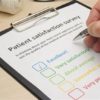
Everyone reacts differently when faced with a stressful situations, and the current Coronavirus pandemic is no different. As we battle to contain the COVID-19 virus, we can often find ourselves isolated from family, friends and work colleagues, which can have an impact on our mental health and well-being.
The Coronavirus pandemic has had an impact on all aspects of society, and it’s important to have practical actions to support your mental health.
There are a number of different ways to manage your mental health during the Coronavirus pandemic:
Try to maintain perspective
It’s understandable to be concerned about outbreaks of COVID-19. However, it is important to remember that experts around the world are working hard to contain and treat the virus, and develop a vaccine. Remember that your efforts to follow government guidelines is helping others in the community to avoid contracting Coronavirus.
Remain practical and calm where possible
Panic can complicate the efforts of experts to manage the pandemic. Try to remain calm and follow official advice, especially around good hygiene. If it makes you feel less anxious, wear a mask when in public. Remind yourself this is a temporary period of isolation to help slow the spread of the virus. Maintain your routines as much as possible to help yourself feel calmer.
You can find more information about hygiene in our guide to protecting yourself during the pandemic.
Maintain social contact and healthy lifestyle choices
While it may not be possible to physically see friends and family, staying connected over the phone and online can be beneficial to mental health. Engaging in healthy activities where possible, regular sleep routines, and eating healthy foods can help you relax, as well as keeping your body healthy.
It’s also important to reach out to others. If you think someone in your social circle is struggling, reach out and let them know you care.
If working from home, try to maintain a healthy work-life balance by sticking to allocated work hours, taking regular breaks, and having a dedicated work space if possible.
Find a healthy balance of media consumption
Large volumes of negative information can increase your anxiety. While it is important to keep informed, it may be helpful to limit your exposure to media if it’s causing you or your family to be upset. Avoid reading social media posts that talk of an apocalypse, and avoid getting drawn into doomsday discussions.
Don’t make assumptions
Remember that those people who contract the virus have not done anything wrong. Coronavirus can affect anyone, regardless of nationality or ethnicity.
Seek support if you need it
It’s normal to feel anxious or stressed during the pandemic. If you have experienced mental health issues in the past, or feel your mental health is being impacted:
- Surround yourself with a support network of friends and family
- Acknowledge any feelings of anxiety or stress – it’s ok to feel this way
- Seek out support from mental health professionals as soon as you feel you’re struggling
When you’re already managing a mental health issue, it is extremely important to continue with the treatment plan outlined by your health team. You should also monitor for any new symptoms that may arise. If you feel anxious about attending health clinics at this time, Telehealth options are available.
If you feel that you need support during this time, our team of GPs and Psychologist can provide you with the help you need. To make an appointment, call our friendly team on (02) 9241 1577, or click here.







